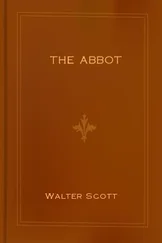Walter Scott - The Betrothed
Здесь есть возможность читать онлайн «Walter Scott - The Betrothed» весь текст электронной книги совершенно бесплатно (целиком полную версию без сокращений). В некоторых случаях можно слушать аудио, скачать через торрент в формате fb2 и присутствует краткое содержание. Год выпуска: 2004, Жанр: Старинная литература, на английском языке. Описание произведения, (предисловие) а так же отзывы посетителей доступны на портале библиотеки ЛибКат.
- Название:The Betrothed
- Автор:
- Жанр:
- Год:2004
- ISBN:нет данных
- Рейтинг книги:3 / 5. Голосов: 1
-
Избранное:Добавить в избранное
- Отзывы:
-
Ваша оценка:
- 60
- 1
- 2
- 3
- 4
- 5
The Betrothed: краткое содержание, описание и аннотация
Предлагаем к чтению аннотацию, описание, краткое содержание или предисловие (зависит от того, что написал сам автор книги «The Betrothed»). Если вы не нашли необходимую информацию о книге — напишите в комментариях, мы постараемся отыскать её.
The Betrothed — читать онлайн бесплатно полную книгу (весь текст) целиком
Ниже представлен текст книги, разбитый по страницам. Система сохранения места последней прочитанной страницы, позволяет с удобством читать онлайн бесплатно книгу «The Betrothed», без необходимости каждый раз заново искать на чём Вы остановились. Поставьте закладку, и сможете в любой момент перейти на страницу, на которой закончили чтение.
Интервал:
Закладка:
To requite this hospitality, Raymond invited the Prince of Powys, with a chosen but limited train, during the ensuing Christmas, to the Garde Doloureuse, which some antiquaries have endeavoured to identify with the Castle of Colune, on the river of the same name. But the length of time, and some geographical difficulties, throw doubts upon this ingenious conjecture.
As the Welshman crossed the drawbridge, he was observed by his faithful bard to shudder with involuntary emotion; nor did Cadwallon, experienced as he was in life, and well acquainted with the character of his master, make any doubt that he was at that moment strongly urged by the apparent opportunity, to seize upon the strong fortress which had been so long the object of his cupidity, even at the expense of violating his good faith.
Dreading lest the struggle of his master's conscience and his ambition should terminate unfavourably for his fame, the bard arrested his attention by whispering in their native language, that "the teeth which bite hardest are those which are out of sight;" and Gwenwyn looking around him, became aware that, though, only unarmed squires and pages appeared in the courtyard, yet the towers and battlements connecting them were garnished with archers and men-at-arms.
They proceeded to the banquet, at which Gwenwyn, for the first time, beheld Eveline Berenger, the sole child of the Norman castellane, the inheritor of his domains and of his supposed wealth, aged only sixteen, and the most beautiful damsel upon the Welsh marches. Many a spear had already been shivered in maintenance of her charms; and the gallant Hugo de Lacy, Constable of Chester, one of the most redoubted warriors of the time, had laid at Eveline's feet the prize which his chivalry had gained in a great tournament held near that ancient town. Gwenwyn considered these triumphs as so many additional recommendations to Eveline; her beauty was incontestable, and she was heiress of the fortress which he so much longed to possess, and which he began now to think might be acquired by means more smooth than those with which he was in the use of working out his will.
Again, the hatred which subsisted between the British and their Saxon and Norman invaders; his long and ill-extinguished feud with this very Raymond Berenger; a general recollection that alliances between the Welsh and English had rarely been happy; and a consciousness that the measure which he meditated would be unpopular among his followers, and appear a dereliction of the systematic principles on which he had hitherto acted, restrained him from speaking his wishes to Raymond or his daughter. The idea of the rejection of his suit did not for a moment occur to him; he was convinced he had but to speak his wishes, and that the daughter of a Norman, castellane, whose rank or power were not of the highest order among the nobles of the frontiers, must be delighted and honoured by a proposal for allying his family with that of the sovereign of a hundred mountains.
There was indeed another objection, which in later times would have been of considerable weight—Gwenwyn was already married. But Brengwain was a childless bride; sovereigns (and among sovereigns the Welsh prince ranked himself) marry for lineage, and the Pope was not likely to be scrupulous, where the question was to oblige a prince who had assumed the Cross with such ready zeal, even although, in fact, his thoughts had been much more on the Garde Doloureuse than on Jerusalem. In the meanwhile, if Raymond Berenger (as was suspected) was not liberal enough in his opinions to permit Eveline to hold the temporary rank of concubine, which the manners of Wales warranted Gwenwyn to offer as an interim, arrangement, he had only to wait for a few months, and sue for a divorce through the Bishop of Saint David's, or some other intercessor at the Court of Rome.
Agitating these thoughts in his mind, Gwenwyn prolonged his residence at the Castle of Berenger, from Christmas till Twelfthday; and endured the presence of the Norman cavaliers who resorted to Raymond's festal halls, although, regarding themselves, in virtue of their rank of knighthood, equal to the most potent sovereigns, they made small account of the long descent of the Welsh prince, who, in their eyes, was but the chief of a semibarbarous province; while he, on his part, considered them little better than a sort of privileged robbers, and with the utmost difficulty restrained himself from manifesting his open hatred, when he beheld them careering in the exercises of chivalry, the habitual use of which rendered them such formidable enemies to his country. At length, the term of feasting was ended, and knight and squire departed from the castle, which once more assumed the aspect of a solitary and guarded frontier fort.
But the Prince of Powys-Land, while pursuing his sports on his own mountains and valleys, found that even the abundance of the game, as well as his release from the society of the Norman chivalry, who affected to treat him as an equal, profited him nothing so long as the light and beautiful form of Eveline, on her white palfrey, was banished from the train of sportsmen. In short, he hesitated no longer, but took into his confidence his chaplain, an able and sagacious man, whose pride was flattered by his patron's communication, and who, besides, saw in the proposed scheme some contingent advantages for himself and his order. By his counsel, the proceedings for Gwenwyn's divorce were prosecuted under favourable auspices, and the unfortunate Brengwain was removed to a nunnery, which perhaps she found a more cheerful habitation than the lonely retreat in which she had led a neglected life, ever since Gwenwyn had despaired of her bed being blessed with issue. Father Einion also dealt with the chiefs and elders of the land, and represented to them the advantage which in future wars they were certain to obtain by the possession of the Garde Doloureuse, which had for more than a century covered and protected a considerable tract of country, rendered their advance difficult, and their retreat perilous, and, in a word, prevented their carrying their incursions as far as the gates of Shrewsbury. As for the union with the Saxon damsel, the fetters which it was to form might not (the good father hinted) be found more permanent than those which had bound Gwenwyn to her predecessor, Brengwain.
These arguments, mingled with others adapted to the views and wishes of different individuals, were so prevailing, that the chaplain in the course of a few weeks was able to report to his princely patron, that this proposed match would meet with no opposition from the elders and nobles of his dominions. A golden bracelet, six ounces in weight, was the instant reward of the priest's dexterity in negotiation, and he was appointed by Gwenwyn to commit to paper those proposals, which he doubted not were to throw the Castle of Garde Doloureuse, notwithstanding its melancholy name, into an ecstasy of joy. With some difficulty the chaplain prevailed on his patron to say nothing in this letter upon his temporary plan of concubinage, which he wisely judged might be considered as an affront both by Eveline and her father. The matter of the divorce he represented as almost entirely settled, and wound up his letter with a moral application, in which were many allusions to Vashti, Esther, and Ahasuerus.
Having despatched this letter by a swift and trusty messenger, the British prince opened in all solemnity the feast of Easter, which had come round during the course of these external and internal negotiations.
Upon the approaching Holy-tide, to propitiate the minds of his subjects and vassals, they were invited in large numbers to partake of a princely festivity at Castell-Coch, or the Red- Castle, as it was then called, since better known by the name of Powys-Castle, and in latter times the princely seat of the Duke of Beaufort. The architectural magnificence of this noble residence is of a much later period than that of Gwenwyn, whose palace, at the time we speak of, was a low, long-roofed edifice of red stone, whence the castle derived its name; while a ditch and palisade were, in addition to the commanding situation, its most important defences.
Читать дальшеИнтервал:
Закладка:
Похожие книги на «The Betrothed»
Представляем Вашему вниманию похожие книги на «The Betrothed» списком для выбора. Мы отобрали схожую по названию и смыслу литературу в надежде предоставить читателям больше вариантов отыскать новые, интересные, ещё непрочитанные произведения.
Обсуждение, отзывы о книге «The Betrothed» и просто собственные мнения читателей. Оставьте ваши комментарии, напишите, что Вы думаете о произведении, его смысле или главных героях. Укажите что конкретно понравилось, а что нет, и почему Вы так считаете.





